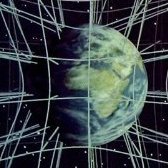Leaderboard
Popular Content
Showing content with the highest reputation on 01/06/20 in all areas
-
Firstly, I notice that you have not answered my questions: I asked for how you would measure "electricity" at each end of the wire (not voltage, not current, not phase, not an electric field, but electricity) to demonstrate that it is different. You have not done that. Which is not surprising, because "electricity" is not a thing that can be measured, any more than "physics" or "history" can be measured. I have also asked you to provide references that support your use of the word electricity and you have totally failed to do that either (again, not surprising as your use of the word is idiosyncratic, to say the least). So if I charge a capacitor, with an electric current and then isolate it so there is an electric voltage between the two terminals, there is no "electricity" by your definition because the electric charges are not moving through wires? That makes no sense. The movement of charges is current, not electricity. What differs at each end of the wire is voltage, not electricity. If you say that "electricity is different at each end" it implies that things like the relationship between moving charges and current is different, or that Ohm's law is different. That somehow electricity behaves differently at each end. Here: https://www.google.com/search?q=define+electricity It is about time you presented some support for your arguments, other than just bluster and insults. Do you realise that pretty much the ONLY reason that people are disagreeing with you is because of your inability to communicate in the English language? (That and your refusal to provide any support for your arguments, your refusal to answer questions and your general attitude.)3 points
-
Surely you meant to write \(g_{\alpha \beta}\), since \(G_{\alpha \beta}\) denotes the Einstein tensor, which is a different quantity.2 points
-
2 points
-
Yeah, sorry about that. I should have dropped it a lot sooner. I typed up my New Year's Resolution to "be more lean" this year, but it autocorrected to "be more mean"! 🥳2 points
-
Depends on the temperature, I think. At higher temperatures a 1% shift in humidity counts for more than that of lower temperatures. In any case, thanks for the clarification.1 point
-
You might find this discussion interesting and useful https://www.quora.com/Signal-Processing-What-are-the-differences-between-a-Laplace-and-Fourier-Transform1 point
-
Here is something about how well irrational numbers (such as Pi) can be approximated by fractions: https://www.quantamagazine.org/new-proof-settles-how-to-approximate-numbers-like-pi-20190814/ As numbers like pi don't "stop", anything expressed using integers (other than an infinite series) can only be an approximation. I assume by evaluating one of the (many) infinite series to that number of decimal places. https://en.wikipedia.org/wiki/Spigot_algorithm Also, surprisingly, it is simpler to calculate the nth digit of pi than all n digits: https://math.hmc.edu/funfacts/finding-the-n-th-digit-of-pi/1 point
-
I realise it's probably impractical but, by far, the best way to reduce the contamination is to get the smokers to go outside. No matter how good the purifier is, there will be particles "en route" to it which you will be stuck with inhaling. To some degree, it's not a matter of how good the filter is, but how fast the fans can push air through that filter. For example, if the fans only move 10 m3 per hour but the room's natural ventilation is 100 m3 per hour, the filter isn't going to achieve as much as you would hope. https://en.wikipedia.org/wiki/Air_changes_per_hour1 point
-
Having done that on three pages has not helped in this discussion so I'll try another approach by answering: If using a non-mainstream* definition of "electricity", could electricity be different at both ends of a wire? Probably, if electricity is defined as something like "The combination of all measurable effects from static or moving electric charges". I'll try an analogy: Let's say we have a car and a road**. The car starts at one end of the road and drives to the other end. Is the car the same at both end of the road? Answer may be "yes" or "no" depending on context. From the drivers or owners point of view they drove the same car, they did not swap car along the road. If a cop followed a suspect driving the car that would probably hold in court, the same car was seen traveling along all of the road. But how about a detailed physical level? Was the car 100% identical? That seems to depend on how do we define "the same". The car consumed fuel. Some small amount of wear and tear would happen on engine, tyres, seats and other parts. Some dust would be collected and so on. So on very detailed level there would be many measurable effects on the car from it's journey. So depending on how the car was modelled one could argue that the car has changed. After the journey the car was not 100% identical. If we would choose to change the definition of a "car" into something like "A specific set of particles that makes up a a road vehicle, typically with four wheels, powered by an internal engine and able to carry a small number of people" then the car may not be the same at both ends of the road. Some particles may be added and some may be lost. But: And this is important: the definition of "car" will not change. Newtons laws (or any other laws used to model some aspect of the car) will not change. Definition of any scientific concepts will not change. Changes in measurements of involved effects does not change the definitions of the scientific concepts. So I still argue that the definition of electricity does not allow electricity change from one end of wire to the other. The definition just does not allow that. The above analogy should highlight how. And also show that alternate definitions, not the common ones from the mainstream, could give a different result. But that would not be meaningful or provide an improvement. edit: X-posted with @Strange, who provided a more elegant and compact formulation: *) Of course I'm not going to suggest that the scientific definition of electricity should be changed, there is no point in changing that. This is just an attempt at helping OP. **) Car is approximately "electricity". The road is the wire.1 point
-
To be fair, many would have been unaware of the full extent of the risk - some of which has grown as a climate change consequence. That does happen. Just as hazard reduction burning is a priority around the edges of vulnerable towns and cities. Like most options it still involves costs - acquistion as well as maintenance; cleared areas don't get that way or stay like that by themselves. Bare dirt is welcome when a fire is approaching but at other times it invites erosion and environmental degradation. Forests and parks have positive values in their own right and widescale elimination of vegetation has significant downsides, even leaving aside conserving natural biology and ecosystems. And I do not think we should leave those aside. Firebreaks - including wide ones around the interface of towns and forests are one element of mitigation but they are not ever going to be an absolute protection. It is hard to overstate how flammable the bush in Eastern Australia has been - not just lighting fires is prohibited, but so is outdoor welding, grinding, using tractor grass slashers. Metal bulldozer tracks have started fires. Even mechanical grain harvester cannot be used in extremes of heat and low humidity. The sight of a cigarette lighter becomes as alarming as someone waving an assault rifle around.1 point
-
1 point
-
If you know stuff you can do stuff but if you understand stuff you can make new stuff; you can play around with the knowledge in meaningful ways when you understand it. That's where insights come from.1 point
-
1 point
-
What would we call it if Iran had killed Secretary of State Mike Pompeo in a drone strike, or if they’d assassinated the modern day equivalent of David Petraeus and Jim Mattis... bc that’s what we just did to them. Meanwhile... from ABC News: The U.S. military has confirmed that there has been a terror attack on a military base in Kenya that houses U.S. military personnel.1 point
-
The brain has it's limitations just like everything else. But there impressive nonetheless. https://www.livescience.com/53751-brain-could-store-internet.html1 point
-
IIRC electrolysis is ~1.25 eV, so it would be 7.5 x 10^26 eV for a kg. That’s 120 MJ, or 33.3 kWh1 point
-
https://www.snopes.com/fact-check/trump-iran-tweets-obama/ I know Trump and his administration have never been dishonest with us, but his motivations for the strike might be different than publicly stated. There’s always a tweet, and sometimes almost 10 of them1 point
-
Hello, I was away for Christmas so did not see your question. Your English appears good and I wish I could say it will be fine, but looking at your question paper learning enough to pass that in 6 months is a very tall order. The (English) Open University has an introductory self test for those wanting to take technical courses. http://mathschoices.open.ac.uk/are-you-ready-quizzes Try it and let us know how you get on. Another good resource if you can get to a library is the introductory chapter in most engineering mathematics texts. This usually covers enough maths to get you going in the book. Also have a look at this book (cheaply available second hand) https://www.amazon.co.uk/Mathematics-Recovered-Natural-Medical-Sciences/dp/04124104001 point
-
Electricity is clearly the movement of electrons between two charges. That movement creates a large number of parameters including voltage, phase, an E filed, current, frequency, standing waves, an H field, and many other parameters. Electricity - a movement of charges across the Atlantic on a wire. What resulted is electricity on each end of that wire was different. The Telegrapher's equation was but one early example of how electricity is always different at both ends of a wire. So rather than argue, please explain why electricity is always same at both ends of a wire. List parameters that support your belief. Rather than just argue, instead, put up some facts. Another example of why we know electricity is always different at both ends of a wire. I suspect you do not know the different between longitudinal mode and transverse mode voltages. That also would explain why you do not grasp these concepts. Only nonsense is that conclusion. Put too much current through a wire (even in a vacuum) and it turns into plasma. No wire is an ideal conductor. Simplest science knowledge make that obvious. Conductors have small resistance or large resistance. Insulators that have high resistance can also have low resistance. Examples of subjective (and therefore junk science) reasoning. "Large" and "small" says nothing useful without numbers. Meanwhile if it has high resistance or low resistance, electricity remains different at both ends. How does electricity travel through one of the best insulators - air? Insulating gases are still conductive. Just less so. No ideal conductor nor ideal insulator exists. Another basic electrical concept that remains unlearned. A thinnest wire can conduct 20,000 volts (ie static charges) and not be damaged. Voltage is an irrelevant (destructive) parameter. Another conclusion justified only by speculation and subjective rationalization.-2 points









